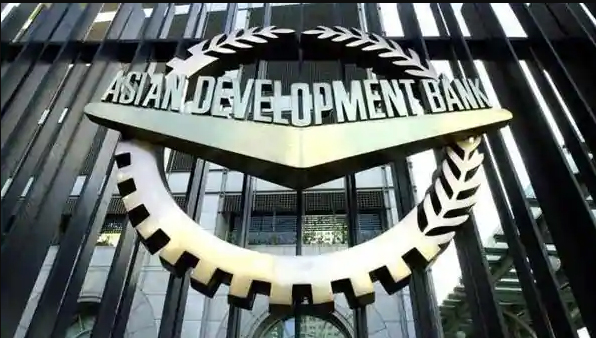Colombo: The Asian Development Bank (ADB) Monday approved a $ 350 million special policy-based loan to provide budget support to Sri Lanka for its economic stabilisation but warned that the cash-strapped country faced a long road to recovery.
The programme approved by the Manila-based ADB is part of a broader package of financial assistance anchored by the International Monetary Fund’s (IMF) Extended Fund Facility for the country, the bank said in a statement.
The IMF recently extended a nearly $ 3 billion bailout facility to debt-ridden Sri Lanka to help stabilise the country’s economy after it was jolted by a devastating economic crisis last year.
“Sri Lanka is facing a severe and unprecedented economic crisis. High inflation has eroded purchasing power, livelihoods have been affected, and past development gains have been reversed,” the ADB said in a statement.
Debt-ridden Sri Lanka, still struggling to normalise its crisis-hit economy after it declared its first-ever debt default in April last year, is hopeful that inflation will reduce to single digits by the year’s end.
“ADB is concerned about the deep crisis in the country and its impact on the people of Sri Lanka, especially the poor and the vulnerable, particularly women,” ADB President Masatsugu Asakawa said.
“ADB is committed to standing with Sri Lanka as it addresses its present challenges and strides toward economic stabilisation, sustainable recovery, and inclusive growth,” he said.
“Sri Lanka has embarked on bold reforms to address the causes of both internal and external imbalances and return to a sustainable debt trajectory. The country faces a long road to recovery and must remain steadfast in the implementation of necessary reforms…,” the statement said.
Transparency and open communication will be crucial in building agreement around the reforms. ADB will proactively engage with the government, other stakeholders, and development partners to help address structural impediments and plan future support, the statement said.
Under the IMF’s bailout package, Sri Lanka set in motion hard structural reforms to address the economic crisis, some of which have met with political resistance.
The ADB asserted that it supported Sri Lanka’s response throughout the crisis.
“In 2022, in close coordination with development partners, ADB provided emergency assistance to support basic services and sustain livelihoods. ADB repurposed $ 334 million of existing loans as an emergency response to support the import of essential items such as fertiliser, medicines, chemicals for water treatment, working capital for small and medium-sized enterprises, and cash transfers to the most poor and vulnerable,” the bank said.
It added that trade finance lines through the ADB Trade and Supply Chain Finance Programme supported essential items’ import during the crisis.
According to official figures, Sri Lanka’s total debt is $ 83.6 billion, of which foreign debt amounts to $ 42.6 billion and domestic debt amounts to $ 42 billion.
President Ranil Wickremesinghe has said that Sri Lanka’s debt restructuring programme will be completed by September this year, and its bankrupt economy will be brought to a stable level. He also assured that discussions on the reworking of both domestic and external debt would be completed by July or August 2023.
In April 2022, Sri Lanka declared its first-ever debt default, the worst economic crisis since its independence from Britain in 1948, triggered by forex shortages that sparked public protests.
Months-long street protests led to the ouster of the then-president Gotabaya Rajapaksa in mid-July. Rajapaksa had started the IMF negotiations after refusing to tap the global lender for support.
PTI
